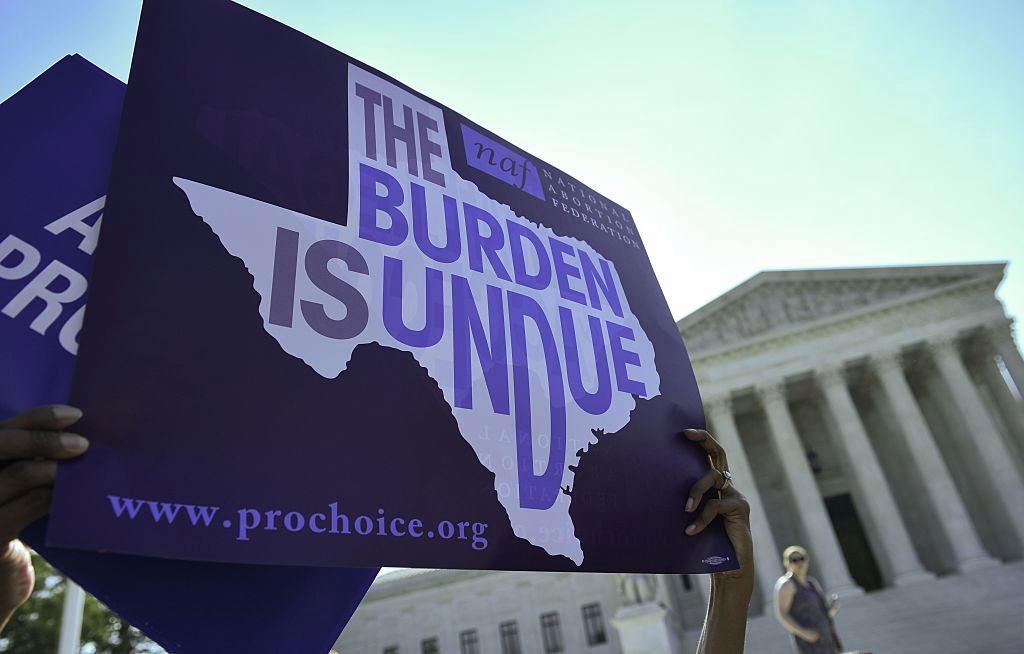
Source: MANDEL NGAN / Getty
Abortion rights activists are taking legal action in hopes of blocking a Texas state law that calls for a lawsuit against anyone person who helps a woman access an abortion. This includes driving them to an appointment or helping them pay for it. This new Texas law, known as S.B.8 or the “heartbeat ban,” rewards those who report anyone seeking or assisting with abortions by awarding them $10,000, the Washington Post reported. This law goes into effect September 1.
“The state has put a bounty on the head of any person or entity who so much as gives a patient money for an abortion after six weeks of pregnancy, before most people know they are pregnant,” Nancy Northup, president of the Center for Reproductive Rights, said in a statement. “Worse, it will intimidate loved ones from providing support for fear of being sued.”
According to the Guttmacher Policy Review, due to the lack of reproductive justice afforded to Black women, “they experience higher rates of unintended pregnancy than women of any other ethnic or racial group,” which means that “rates of unintended pregnancy among Black women more than double those of non-Hispanic white women.” Black women are also three times more likely to die during childbirth than white women. Black women already lack access to resources that can help them make informed decisions about their reproductive health. With a law like this in place, they are penalized after gaining the tools they need and for making a choice regarding their body and their life.
A state maternal mortality and morbidity review committee in Texas found that this state has a high rate of pregnancy-related deaths that are preventable, The Guardian noted. When they examined pregnancy-related deaths for 2013, it was found that 90% of the deaths were preventable. The underlying causes of deaths included cardiovascular conditions, preeclampsia, hemorrhage and infections.
Dr. Amy Raines-Milenkov, a University of North Texas Health Science Center professor, said the findings speak as to how Black women aren’t protected nor valued.
“We found that most of these deaths could have been prevented but the system is just not set up to prevent them. And we found a large racial disparity, which is a reflection of how we in society value women, especially African American women,” Dr. Milenkov, who was also on the review committee, said.


